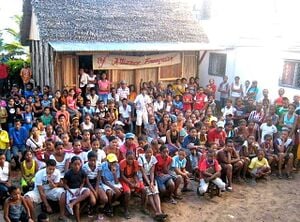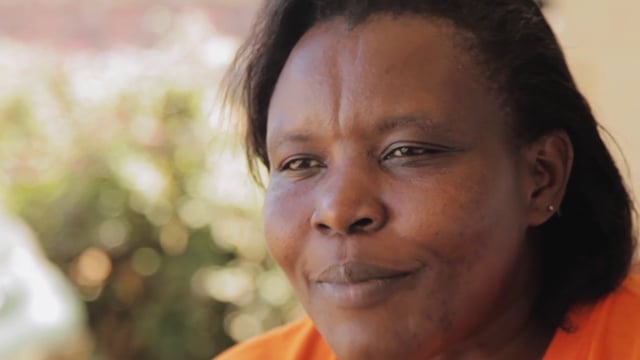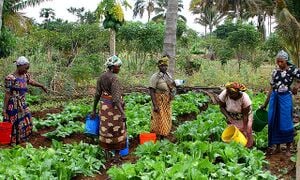Loading map...
{"format":"leaflet","minzoom":false,"maxzoom":false,"limit":99999,"offset":0,"link":"all","sort":[""],"order":[],"headers":"show","mainlabel":"","intro":"","outro":"","searchlabel":"\u003Cspan class=\"mw-ui-button\" style=\"margin: .5em 0;\"\u003EMore results\u003C/span\u003E","default":"","import-annotation":false,"width":"auto","height":"350px","centre":false,"title":"","label":"","icon":"","lines":[],"polygons":[],"circles":[],"rectangles":[],"copycoords":false,"static":false,"zoom":false,"defzoom":14,"layers":["OpenStreetMap"],"image layers":[],"overlays":[],"resizable":false,"fullscreen":false,"scrollwheelzoom":true,"cluster":true,"clustermaxzoom":20,"clusterzoomonclick":true,"clustermaxradius":80,"clusterspiderfy":true,"geojson":"","clicktarget":"","showtitle":true,"hidenamespace":true,"template":"","userparam":"","activeicon":"","pagelabel":false,"ajaxcoordproperty":"","ajaxquery":"","locations":[{"text":"\u003Cb\u003E\u003Ca href=\"/ALL-SAFE\" title=\"ALL-SAFE\"\u003EALL-SAFE\u003C/a\u003E\u003C/b\u003E","title":"ALL-SAFE","link":"","lat":42.29421388888899713265345781110227108001708984375,"lon":-83.7100388888890023508793092332780361175537109375,"icon":""},{"text":"\u003Cb\u003E\u003Ca href=\"/ALL-SAFE\" title=\"ALL-SAFE\"\u003EALL-SAFE\u003C/a\u003E\u003C/b\u003E","title":"ALL-SAFE","link":"","lat":39.810441666667003346447017975151538848876953125,"lon":-89.65796944444400651264004409313201904296875,"icon":""},{"text":"\u003Cb\u003E\u003Ca href=\"/ALL-SAFE\" title=\"ALL-SAFE\"\u003EALL-SAFE\u003C/a\u003E\u003C/b\u003E","title":"ALL-SAFE","link":"","lat":6.1640833333333002741483142017386853694915771484375,"lon":10.289944444444000026805952074937522411346435546875,"icon":""},{"text":"\u003Cb\u003E\u003Ca href=\"/ALL-SAFE\" title=\"ALL-SAFE\"\u003EALL-SAFE\u003C/a\u003E\u003C/b\u003E","title":"ALL-SAFE","link":"","lat":8.699999999999999289457264239899814128875732421875,"lon":38.383330555556000263095484115183353424072265625,"icon":""},{"text":"\u003Cb\u003E\u003Ca href=\"/ALL-SAFE\" title=\"ALL-SAFE\"\u003EALL-SAFE\u003C/a\u003E\u003C/b\u003E","title":"ALL-SAFE","link":"","lat":-0.94941111111110998432849328310112468898296356201171875,"lon":36.607711111111001400786335580050945281982421875,"icon":""},{"text":"\u003Cb\u003E\u003Ca href=\"/Africa_community_action\" title=\"Africa community action\"\u003EAfrica community action\u003C/a\u003E\u003C/b\u003E","title":"Africa community action","link":"","lat":11.5024333333330002204775155405513942241668701171875,"lon":17.757811111110999746642846730537712574005126953125,"icon":""},{"text":"\u003Cb\u003E\u003Ca href=\"/Africa_news\" title=\"Africa news\"\u003EAfrica news\u003C/a\u003E\u003C/b\u003E","title":"Africa news","link":"","lat":11.5024333333330002204775155405513942241668701171875,"lon":17.757811111110999746642846730537712574005126953125,"icon":""},{"text":"\u003Cb\u003E\u003Ca href=\"/Africa_news/2008-2014\" title=\"Africa news/2008-2014\"\u003EAfrica news/2008-2014\u003C/a\u003E\u003C/b\u003E","title":"Africa news/2008-2014","link":"","lat":11.5024333333330002204775155405513942241668701171875,"lon":17.757811111110999746642846730537712574005126953125,"icon":""},{"text":"\u003Cb\u003E\u003Ca href=\"/Africa_news/2015-2021\" title=\"Africa news/2015-2021\"\u003EAfrica news/2015-2021\u003C/a\u003E\u003C/b\u003E","title":"Africa news/2015-2021","link":"","lat":11.5024333333330002204775155405513942241668701171875,"lon":17.757811111110999746642846730537712574005126953125,"icon":""},{"text":"\u003Cb\u003E\u003Ca href=\"/Africa_news/2022\" title=\"Africa news/2022\"\u003EAfrica news/2022\u003C/a\u003E\u003C/b\u003E","title":"Africa news/2022","link":"","lat":11.5024333333330002204775155405513942241668701171875,"lon":17.757811111110999746642846730537712574005126953125,"icon":""},{"text":"\u003Cb\u003E\u003Ca href=\"/Africa_news/2023\" title=\"Africa news/2023\"\u003EAfrica news/2023\u003C/a\u003E\u003C/b\u003E","title":"Africa news/2023","link":"","lat":11.5024333333330002204775155405513942241668701171875,"lon":17.757811111110999746642846730537712574005126953125,"icon":""},{"text":"\u003Cb\u003E\u003Ca href=\"/Africaid\" title=\"Africaid\"\u003EAfricaid\u003C/a\u003E\u003C/b\u003E","title":"Africaid","link":"","lat":39.7546361111109973762722802348434925079345703125,"lon":-105.2205805555600051093279034830629825592041015625,"icon":""},{"text":"\u003Cb\u003E\u003Ca href=\"/Agahozo-Shalom_Youth_Village_Nature_Hut\" title=\"Agahozo-Shalom Youth Village Nature Hut\"\u003EAgahozo-Shalom Youth Village Nature Hut\u003C/a\u003E\u003C/b\u003E","title":"Agahozo-Shalom Youth Village Nature Hut","link":"","lat":-1.96466388888890008956877863965928554534912109375,"lon":30.06443611111100011612506932578980922698974609375,"icon":""},{"text":"\u003Cb\u003E\u003Ca href=\"/Antneh%27s_rainwater_storing_gojo\" title=\"Antneh\u0026#039;s rainwater storing gojo\"\u003EAntneh's rainwater storing gojo\u003C/a\u003E\u003C/b\u003E","title":"Antneh's rainwater storing gojo","link":"","lat":9.035827777777800662306617596186697483062744140625,"lon":38.75241388888900218034905265085399150848388671875,"icon":""},{"text":"\u003Cb\u003E\u003Ca href=\"/Bag_gardens\" title=\"Bag gardens\"\u003EBag gardens\u003C/a\u003E\u003C/b\u003E","title":"Bag gardens","link":"","lat":22.351113888888999525761391851119697093963623046875,"lon":78.6677416666669984124382608570158481597900390625,"icon":""},{"text":"\u003Cb\u003E\u003Ca href=\"/Bag_gardens\" title=\"Bag gardens\"\u003EBag gardens\u003C/a\u003E\u003C/b\u003E","title":"Bag gardens","link":"","lat":-28.81662222222200142596193472854793071746826171875,"lon":24.9916388888889997588194091804325580596923828125,"icon":""},{"text":"\u003Cb\u003E\u003Ca href=\"/Bag_gardens\" title=\"Bag gardens\"\u003EBag gardens\u003C/a\u003E\u003C/b\u003E","title":"Bag gardens","link":"","lat":-19.30223333333299962077944655902683734893798828125,"lon":34.91449722222200335863817599602043628692626953125,"icon":""},{"text":"\u003Cb\u003E\u003Ca href=\"/Bag_gardens\" title=\"Bag gardens\"\u003EBag gardens\u003C/a\u003E\u003C/b\u003E","title":"Bag gardens","link":"","lat":3.706286111111099845771832406171597540378570556640625,"lon":34.873488888888999781556776724755764007568359375,"icon":""},{"text":"\u003Cb\u003E\u003Ca href=\"/Bag_gardens\" title=\"Bag gardens\"\u003EBag gardens\u003C/a\u003E\u003C/b\u003E","title":"Bag gardens","link":"","lat":51.28120277777799884688647580333054065704345703125,"lon":3.75800277777779978549688166822306811809539794921875,"icon":""},{"text":"\u003Cb\u003E\u003Ca href=\"/Bag_gardens\" title=\"Bag gardens\"\u003EBag gardens\u003C/a\u003E\u003C/b\u003E","title":"Bag gardens","link":"","lat":31.443222222222001249747336260043084621429443359375,"lon":34.3600083333329990864513092674314975738525390625,"icon":""},{"text":"\u003Cb\u003E\u003Ca href=\"/Bag_gardens\" title=\"Bag gardens\"\u003EBag gardens\u003C/a\u003E\u003C/b\u003E","title":"Bag gardens","link":"","lat":-0.473522222222220012799454025298473425209522247314453125,"lon":39.59806944444400045313159353099763393402099609375,"icon":""},{"text":"\u003Cb\u003E\u003Ca href=\"/Botswana_community_action\" title=\"Botswana community action\"\u003EBotswana community action\u003C/a\u003E\u003C/b\u003E","title":"Botswana community action","link":"","lat":-23.16817777777799847171991132199764251708984375,"lon":24.59287499999999937472239253111183643341064453125,"icon":""},{"text":"\u003Cb\u003E\u003Ca href=\"/Burkina_Faso_community_action\" title=\"Burkina Faso community action\"\u003EBurkina Faso community action\u003C/a\u003E\u003C/b\u003E","title":"Burkina Faso community action","link":"","lat":12.0753083333330000215255495277233421802520751953125,"lon":-1.68803055555560010958515704260207712650299072265625,"icon":""},{"text":"\u003Cb\u003E\u003Ca href=\"/CO2-Baited_CDC_Light_Trap\" title=\"CO2-Baited CDC Light Trap\"\u003ECO2-Baited CDC Light Trap\u003C/a\u003E\u003C/b\u003E","title":"CO2-Baited CDC Light Trap","link":"","lat":1.4419694444444000058780375184142030775547027587890625,"lon":38.4313972222220030516837141476571559906005859375,"icon":""},{"text":"\u003Cb\u003E\u003Ca href=\"/Cameroon_community_action\" title=\"Cameroon community action\"\u003ECameroon community action\u003C/a\u003E\u003C/b\u003E","title":"Cameroon community action","link":"","lat":5.48391666666670030139130176394246518611907958984375,"lon":9.860350000000000392219590139575302600860595703125,"icon":""},{"text":"\u003Cb\u003E\u003Ca href=\"/Chad_community_action\" title=\"Chad community action\"\u003EChad community action\u003C/a\u003E\u003C/b\u003E","title":"Chad community action","link":"","lat":12.8029333333329997657301646540872752666473388671875,"lon":14.887716666666999998369647073559463024139404296875,"icon":""},{"text":"\u003Cb\u003E\u003Ca href=\"/Countryside_Development_Transformation_Zambia\" title=\"Countryside Development Transformation Zambia\"\u003ECountryside Development Transformation Zambia\u003C/a\u003E\u003C/b\u003E","title":"Countryside Development Transformation Zambia","link":"","lat":-14.5189111111110005225555141805671155452728271484375,"lon":27.558988888889000890003444510512053966522216796875,"icon":""},{"text":"\u003Cb\u003E\u003Ca href=\"/User:Curamericas_Global\" title=\"User:Curamericas Global\"\u003ECuramericas Global\u003C/a\u003E\u003C/b\u003E","title":"Curamericas Global","link":"","lat":15.5855555555560005842608006787486374378204345703125,"lon":-90.3457583333329949937251512892544269561767578125,"icon":""},{"text":"\u003Cb\u003E\u003Ca href=\"/User:Curamericas_Global\" title=\"User:Curamericas Global\"\u003ECuramericas Global\u003C/a\u003E\u003C/b\u003E","title":"Curamericas Global","link":"","lat":19.139994444443999555005575530230998992919921875,"lon":-72.357097222221995025392971001565456390380859375,"icon":""},{"text":"\u003Cb\u003E\u003Ca href=\"/User:Curamericas_Global\" title=\"User:Curamericas Global\"\u003ECuramericas Global\u003C/a\u003E\u003C/b\u003E","title":"Curamericas Global","link":"","lat":-17.056869444444000549765405594371259212493896484375,"lon":-64.991227777777993424024316482245922088623046875,"icon":""},{"text":"\u003Cb\u003E\u003Ca href=\"/DR_Congo_community_action\" title=\"DR Congo community action\"\u003EDR Congo community action\u003C/a\u003E\u003C/b\u003E","title":"DR Congo community action","link":"","lat":-2.981433333333300073064719981630332767963409423828125,"lon":23.822263888889001037796333548612892627716064453125,"icon":""},{"text":"\u003Cb\u003E\u003Ca href=\"/Decentralized_Renewable_Hybrid_Mini-Grids_for_Rural_Communities:_Culmination_of_the_IREP_Framework_and_Scale_up_to_Urban_Communities\" title=\"Decentralized Renewable Hybrid Mini-Grids for Rural Communities: Culmination of the IREP Framework and Scale up to Urban Communities\"\u003EDecentralized Renewable Hybrid Mini-Grids for Rural Communities: Culmination of the IREP Framework and Scale up to Urban Communities\u003C/a\u003E\u003C/b\u003E","title":"Decentralized Renewable Hybrid Mini-Grids for Rural Communities: Culmination of the IREP Framework and Scale up to Urban Communities","link":"","lat":9.6000361111111001122253583162091672420501708984375,"lon":7.99997222222220027987305002170614898204803466796875,"icon":""},{"text":"\u003Cb\u003E\u003Ca href=\"/Deforestation_in_Somalia\" title=\"Deforestation in Somalia\"\u003EDeforestation in Somalia\u003C/a\u003E\u003C/b\u003E","title":"Deforestation in Somalia","link":"","lat":9.3497888888889004732618559501133859157562255859375,"lon":42.800338888889001509596710093319416046142578125,"icon":""},{"text":"\u003Cb\u003E\u003Ca href=\"/Demonstration_of_the_integrated_rural_energy_planning_framework_for_sustainable_energy_development_in_low-income_countries:_Case_studies_of_rural_communities_in_Nigeria\" title=\"Demonstration of the integrated rural energy planning framework for sustainable energy development in low-income countries: Case studies of rural communities in Nigeria\"\u003EDemonstration of the integrated rural energy planning framework for sustainable energy development in low-income countries: Case studies of rural communities in Nigeria\u003C/a\u003E\u003C/b\u003E","title":"Demonstration of the integrated rural energy planning framework for sustainable energy development in low-income countries: Case studies of rural communities in Nigeria","link":"","lat":9.6000361111111001122253583162091672420501708984375,"lon":7.99997222222220027987305002170614898204803466796875,"icon":""},{"text":"\u003Cb\u003E\u003Ca href=\"/User:ETALO\" title=\"User:ETALO\"\u003EETALO\u003C/a\u003E\u003C/b\u003E","title":"ETALO","link":"","lat":1.5333555555555999916350629064254462718963623046875,"lon":32.2166583333330009963901829905807971954345703125,"icon":""},{"text":"\u003Cb\u003E\u003Ca href=\"/User:ETALO\" title=\"User:ETALO\"\u003EETALO\u003C/a\u003E\u003C/b\u003E","title":"ETALO","link":"","lat":61.0666916666669976621051318943500518798828125,"lon":-107.99170833332999563936027698218822479248046875,"icon":""},{"text":"\u003Cb\u003E\u003Ca href=\"/User:ETALO\" title=\"User:ETALO\"\u003EETALO\u003C/a\u003E\u003C/b\u003E","title":"ETALO","link":"","lat":39.78373055555599790977794327773153781890869140625,"lon":-100.4458833333300020740352920256555080413818359375,"icon":""},{"text":"\u003Cb\u003E\u003Ca href=\"/User:ETALO\" title=\"User:ETALO\"\u003EETALO\u003C/a\u003E\u003C/b\u003E","title":"ETALO","link":"","lat":44.66631388888900033862228156067430973052978515625,"lon":-93.6261916666669975484182941727340221405029296875,"icon":""},{"text":"\u003Cb\u003E\u003Ca href=\"/Ecological_restoration_Africa\" title=\"Ecological restoration Africa\"\u003EEcological restoration Africa\u003C/a\u003E\u003C/b\u003E","title":"Ecological restoration Africa","link":"","lat":11.5024333333330002204775155405513942241668701171875,"lon":17.757811111110999746642846730537712574005126953125,"icon":""},{"text":"\u003Cb\u003E\u003Ca href=\"/Economic_viability_of_captive_off-grid_solar_photovoltaic_and_diesel_hybrid_energy_systems_for_the_Nigerian_private_sector\" title=\"Economic viability of captive off-grid solar photovoltaic and diesel hybrid energy systems for the Nigerian private sector\"\u003EEconomic viability of captive off-grid solar photovoltaic and diesel hybrid energy systems for the Nigerian private sector\u003C/a\u003E\u003C/b\u003E","title":"Economic viability of captive off-grid solar photovoltaic and diesel hybrid energy systems for the Nigerian private sector","link":"","lat":9.6000361111111001122253583162091672420501708984375,"lon":7.99997222222220027987305002170614898204803466796875,"icon":""},{"text":"\u003Cb\u003E\u003Ca href=\"/Egypt_community_action\" title=\"Egypt community action\"\u003EEgypt community action\u003C/a\u003E\u003C/b\u003E","title":"Egypt community action","link":"","lat":26.25404999999999944293449516408145427703857421875,"lon":29.26754722222199944781095837242901325225830078125,"icon":""},{"text":"\u003Cb\u003E\u003Ca href=\"/Energy_in_Common\" title=\"Energy in Common\"\u003EEnergy in Common\u003C/a\u003E\u003C/b\u003E","title":"Energy in Common","link":"","lat":39.78373055555599790977794327773153781890869140625,"lon":-100.4458833333300020740352920256555080413818359375,"icon":""},{"text":"\u003Cb\u003E\u003Ca href=\"/Erosion_and_Land_restoration,_Senegal\" title=\"Erosion and Land restoration, Senegal\"\u003EErosion and Land restoration, Senegal\u003C/a\u003E\u003C/b\u003E","title":"Erosion and Land restoration, Senegal","link":"","lat":14.7948083333330000499472589581273496150970458984375,"lon":-16.952927777778000972830341197550296783447265625,"icon":""},{"text":"\u003Cb\u003E\u003Ca href=\"/Ethiopia_community_action\" title=\"Ethiopia community action\"\u003EEthiopia community action\u003C/a\u003E\u003C/b\u003E","title":"Ethiopia community action","link":"","lat":10.2116694444440003763929780689068138599395751953125,"lon":38.6521194444439970538951456546783447265625,"icon":""},{"text":"\u003Cb\u003E\u003Ca href=\"/Fabric_Filter\" title=\"Fabric Filter\"\u003EFabric Filter\u003C/a\u003E\u003C/b\u003E","title":"Fabric Filter","link":"","lat":1.4419694444444000058780375184142030775547027587890625,"lon":38.4313972222220030516837141476571559906005859375,"icon":""},{"text":"\u003Cb\u003E\u003Ca href=\"/Freeplay_Fetal_Heart_Rate_Monitor\" title=\"Freeplay Fetal Heart Rate Monitor\"\u003EFreeplay Fetal Heart Rate Monitor\u003C/a\u003E\u003C/b\u003E","title":"Freeplay Fetal Heart Rate Monitor","link":"","lat":-33.9289916666670023914775811135768890380859375,"lon":18.41739722222200015266935224644839763641357421875,"icon":""},{"text":"\u003Cb\u003E\u003Ca href=\"/Fuel_briquettes\" title=\"Fuel briquettes\"\u003EFuel briquettes\u003C/a\u003E\u003C/b\u003E","title":"Fuel briquettes","link":"","lat":-1.95084999999999997299937604111619293689727783203125,"lon":30.061508333332998432751992368139326572418212890625,"icon":""},{"text":"\u003Cb\u003E\u003Ca href=\"/Gabon_community_action\" title=\"Gabon community action\"\u003EGabon community action\u003C/a\u003E\u003C/b\u003E","title":"Gabon community action","link":"","lat":-0.89996944444444004762573285916005261242389678955078125,"lon":11.689969444443999435634395922534167766571044921875,"icon":""},{"text":"\u003Cb\u003E\u003Ca href=\"/Gambia_community_action\" title=\"Gambia community action\"\u003EGambia community action\u003C/a\u003E\u003C/b\u003E","title":"Gambia community action","link":"","lat":13.4466611111110001530732915853150188922882080078125,"lon":-16.708591666667000907864348846487700939178466796875,"icon":""},{"text":"\u003Cb\u003E\u003Ca href=\"/Ghana_community_action\" title=\"Ghana community action\"\u003EGhana community action\u003C/a\u003E\u003C/b\u003E","title":"Ghana community action","link":"","lat":8.030027777777799968816907494328916072845458984375,"lon":-1.0800277777778000132258284793351776897907257080078125,"icon":""},{"text":"\u003Cb\u003E\u003Ca href=\"/User:Gracendayishimiye\" title=\"User:Gracendayishimiye\"\u003EGracendayishimiye\u003C/a\u003E\u003C/b\u003E","title":"Gracendayishimiye","link":"","lat":40.07966111111100104835713864304125308990478515625,"lon":-89.4337277777780030874055228196084499359130859375,"icon":""},{"text":"\u003Cb\u003E\u003Ca href=\"/Hand-washing_Dispenser\" title=\"Hand-washing Dispenser\"\u003EHand-washing Dispenser\u003C/a\u003E\u003C/b\u003E","title":"Hand-washing Dispenser","link":"","lat":-25.74592777777800023386589600704610347747802734375,"lon":28.18791111111099922936773509718477725982666015625,"icon":""},{"text":"\u003Cb\u003E\u003Ca href=\"/Hot_water_bottle_incubator\" title=\"Hot water bottle incubator\"\u003EHot water bottle incubator\u003C/a\u003E\u003C/b\u003E","title":"Hot water bottle incubator","link":"","lat":-1.3026138888889000622128833128954283893108367919921875,"lon":36.8288416666670030963359749875962734222412109375,"icon":""},{"text":"\u003Cb\u003E\u003Ca href=\"/Interlocking_Stabilized_Soil_Block_(ISSB)_Maker\" title=\"Interlocking Stabilized Soil Block (ISSB) Maker\"\u003EInterlocking Stabilized Soil Block (ISSB) Maker\u003C/a\u003E\u003C/b\u003E","title":"Interlocking Stabilized Soil Block (ISSB) Maker","link":"","lat":15.5855555555560005842608006787486374378204345703125,"lon":-90.3457583333329949937251512892544269561767578125,"icon":""},{"text":"\u003Cb\u003E\u003Ca href=\"/Interlocking_Stabilized_Soil_Block_(ISSB)_Maker\" title=\"Interlocking Stabilized Soil Block (ISSB) Maker\"\u003EInterlocking Stabilized Soil Block (ISSB) Maker\u003C/a\u003E\u003C/b\u003E","title":"Interlocking Stabilized Soil Block (ISSB) Maker","link":"","lat":15.2572444444439998534335245494730770587921142578125,"lon":-86.0755138888890058979086461476981639862060546875,"icon":""},{"text":"\u003Cb\u003E\u003Ca href=\"/Interlocking_Stabilized_Soil_Block_(ISSB)_Maker\" title=\"Interlocking Stabilized Soil Block (ISSB) Maker\"\u003EInterlocking Stabilized Soil Block (ISSB) Maker\u003C/a\u003E\u003C/b\u003E","title":"Interlocking Stabilized Soil Block (ISSB) Maker","link":"","lat":29.855644444443999674376755137927830219268798828125,"lon":90.874980555555993078087340109050273895263671875,"icon":""},{"text":"\u003Cb\u003E\u003Ca href=\"/Interlocking_Stabilized_Soil_Block_(ISSB)_Maker\" title=\"Interlocking Stabilized Soil Block (ISSB) Maker\"\u003EInterlocking Stabilized Soil Block (ISSB) Maker\u003C/a\u003E\u003C/b\u003E","title":"Interlocking Stabilized Soil Block (ISSB) Maker","link":"","lat":-14.5189111111110005225555141805671155452728271484375,"lon":27.558988888889000890003444510512053966522216796875,"icon":""},{"text":"\u003Cb\u003E\u003Ca href=\"/KAFRED\" title=\"KAFRED\"\u003EKAFRED\u003C/a\u003E\u003C/b\u003E","title":"KAFRED","link":"","lat":2.084255555555599936923272252897731959819793701171875,"lon":33.7644166666670031418107100762426853179931640625,"icon":""},{"text":"\u003Cb\u003E\u003Ca href=\"/User:Kalitone\" title=\"User:Kalitone\"\u003EKalitone\u003C/a\u003E\u003C/b\u003E","title":"Kalitone","link":"","lat":40.07966111111100104835713864304125308990478515625,"lon":-89.4337277777780030874055228196084499359130859375,"icon":""},{"text":"\u003Cb\u003E\u003Ca href=\"/Kanga\" title=\"Kanga\"\u003EKanga\u003C/a\u003E\u003C/b\u003E","title":"Kanga","link":"","lat":-6.52471111111109980384981099632568657398223876953125,"lon":35.78784444444399781559695838950574398040771484375,"icon":""},{"text":"\u003Cb\u003E\u003Ca href=\"/User:Kb\" title=\"User:Kb\"\u003EKb\u003C/a\u003E\u003C/b\u003E","title":"Kb","link":"","lat":40.07966111111100104835713864304125308990478515625,"lon":-89.4337277777780030874055228196084499359130859375,"icon":""},{"text":"\u003Cb\u003E\u003Ca href=\"/Kenya_Ceramic_Jiko\" title=\"Kenya Ceramic Jiko\"\u003EKenya Ceramic Jiko\u003C/a\u003E\u003C/b\u003E","title":"Kenya Ceramic Jiko","link":"","lat":0.25893333333333001800014017135254107415676116943359375,"lon":35.08648333333299973446628428064286708831787109375,"icon":""},{"text":"\u003Cb\u003E\u003Ca href=\"/Kenya_community_action\" title=\"Kenya community action\"\u003EKenya community action\u003C/a\u003E\u003C/b\u003E","title":"Kenya community action","link":"","lat":1.4419694444444000058780375184142030775547027587890625,"lon":38.4313972222220030516837141476571559906005859375,"icon":""},{"text":"\u003Cb\u003E\u003Ca href=\"/Kenya_community_action_resources\" title=\"Kenya community action resources\"\u003EKenya community action resources\u003C/a\u003E\u003C/b\u003E","title":"Kenya community action resources","link":"","lat":1.4419694444444000058780375184142030775547027587890625,"lon":38.4313972222220030516837141476571559906005859375,"icon":""},{"text":"\u003Cb\u003E\u003Ca href=\"/Kenya_news\" title=\"Kenya news\"\u003EKenya news\u003C/a\u003E\u003C/b\u003E","title":"Kenya news","link":"","lat":1.4419694444444000058780375184142030775547027587890625,"lon":38.4313972222220030516837141476571559906005859375,"icon":""},{"text":"\u003Cb\u003E\u003Ca href=\"/Kenya_news/2008-2009\" title=\"Kenya news/2008-2009\"\u003EKenya news/2008-2009\u003C/a\u003E\u003C/b\u003E","title":"Kenya news/2008-2009","link":"","lat":1.4419694444444000058780375184142030775547027587890625,"lon":38.4313972222220030516837141476571559906005859375,"icon":""},{"text":"\u003Cb\u003E\u003Ca href=\"/Kenya_news/2010-2011\" title=\"Kenya news/2010-2011\"\u003EKenya news/2010-2011\u003C/a\u003E\u003C/b\u003E","title":"Kenya news/2010-2011","link":"","lat":1.4419694444444000058780375184142030775547027587890625,"lon":38.4313972222220030516837141476571559906005859375,"icon":""},{"text":"\u003Cb\u003E\u003Ca href=\"/Kenya_news/2014-2016\" title=\"Kenya news/2014-2016\"\u003EKenya news/2014-2016\u003C/a\u003E\u003C/b\u003E","title":"Kenya news/2014-2016","link":"","lat":1.4419694444444000058780375184142030775547027587890625,"lon":38.4313972222220030516837141476571559906005859375,"icon":""},{"text":"\u003Cb\u003E\u003Ca href=\"/Keramischer_Herd_aus_Kenia\" title=\"Keramischer Herd aus Kenia\"\u003EKeramischer Herd aus Kenia\u003C/a\u003E\u003C/b\u003E","title":"Keramischer Herd aus Kenia","link":"","lat":1.4419694444444000058780375184142030775547027587890625,"lon":38.4313972222220030516837141476571559906005859375,"icon":""},{"text":"\u003Cb\u003E\u003Ca href=\"/Keyhole_garden\" title=\"Keyhole garden\"\u003EKeyhole garden\u003C/a\u003E\u003C/b\u003E","title":"Keyhole garden","link":"","lat":11.5024333333330002204775155405513942241668701171875,"lon":17.757811111110999746642846730537712574005126953125,"icon":""},{"text":"\u003Cb\u003E\u003Ca href=\"/Kisii_Water_Filter\" title=\"Kisii Water Filter\"\u003EKisii Water Filter\u003C/a\u003E\u003C/b\u003E","title":"Kisii Water Filter","link":"","lat":1.4419694444444000058780375184142030775547027587890625,"lon":38.4313972222220030516837141476571559906005859375,"icon":""},{"text":"\u003Cb\u003E\u003Ca href=\"/Kuua_vijidudu_kwenye_maji_kwa_Jua\" title=\"Kuua vijidudu kwenye maji kwa Jua\"\u003EKuua vijidudu kwenye maji kwa Jua\u003C/a\u003E\u003C/b\u003E","title":"Kuua vijidudu kwenye maji kwa Jua","link":"","lat":-6.52471111111109980384981099632568657398223876953125,"lon":35.78784444444399781559695838950574398040771484375,"icon":""},{"text":"\u003Cb\u003E\u003Ca href=\"/Leapingstone\" title=\"Leapingstone\"\u003ELeapingstone\u003C/a\u003E\u003C/b\u003E","title":"Leapingstone","link":"","lat":6.92479166666670042928899420076049864292144775390625,"lon":0.6402861111111100012038832574035041034221649169921875,"icon":""},{"text":"\u003Cb\u003E\u003Ca href=\"/Madagascar_community_action\" title=\"Madagascar community action\"\u003EMadagascar community action\u003C/a\u003E\u003C/b\u003E","title":"Madagascar community action","link":"","lat":-18.924961111110999212314709438942372798919677734375,"lon":46.44164166666700310770465875975787639617919921875,"icon":""},{"text":"\u003Cb\u003E\u003Ca href=\"/Makaa:rafiki_wa_mazingira,_mbadala_wa_kuni\" title=\"Makaa:rafiki wa mazingira, mbadala wa kuni\"\u003EMakaa:rafiki wa mazingira, mbadala wa kuni\u003C/a\u003E\u003C/b\u003E","title":"Makaa:rafiki wa mazingira, mbadala wa kuni","link":"","lat":-1.95084999999999997299937604111619293689727783203125,"lon":30.061508333332998432751992368139326572418212890625,"icon":""},{"text":"\u003Cb\u003E\u003Ca href=\"/Malawi_community_action\" title=\"Malawi community action\"\u003EMalawi community action\u003C/a\u003E\u003C/b\u003E","title":"Malawi community action","link":"","lat":-13.2687194444440006435570467147044837474822998046875,"lon":33.93019722222199874295256449840962886810302734375,"icon":""},{"text":"\u003Cb\u003E\u003Ca href=\"/Malawi_news\" title=\"Malawi news\"\u003EMalawi news\u003C/a\u003E\u003C/b\u003E","title":"Malawi news","link":"","lat":-13.2687194444440006435570467147044837474822998046875,"lon":33.93019722222199874295256449840962886810302734375,"icon":""},{"text":"\u003Cb\u003E\u003Ca href=\"/Mali_community_action\" title=\"Mali community action\"\u003EMali community action\u003C/a\u003E\u003C/b\u003E","title":"Mali community action","link":"","lat":16.37003611111099843355987104587256908416748046875,"lon":-2.2900249999999999772626324556767940521240234375,"icon":""},{"text":"\u003Cb\u003E\u003Ca href=\"/Maquina_para_bloques_de_suelo_estabilizado\" title=\"Maquina para bloques de suelo estabilizado\"\u003EMaquina para bloques de suelo estabilizado\u003C/a\u003E\u003C/b\u003E","title":"Maquina para bloques de suelo estabilizado","link":"","lat":15.5855555555560005842608006787486374378204345703125,"lon":-90.3457583333329949937251512892544269561767578125,"icon":""},{"text":"\u003Cb\u003E\u003Ca href=\"/Maquina_para_bloques_de_suelo_estabilizado\" title=\"Maquina para bloques de suelo estabilizado\"\u003EMaquina para bloques de suelo estabilizado\u003C/a\u003E\u003C/b\u003E","title":"Maquina para bloques de suelo estabilizado","link":"","lat":15.2572444444439998534335245494730770587921142578125,"lon":-86.0755138888890058979086461476981639862060546875,"icon":""},{"text":"\u003Cb\u003E\u003Ca href=\"/Maquina_para_bloques_de_suelo_estabilizado\" title=\"Maquina para bloques de suelo estabilizado\"\u003EMaquina para bloques de suelo estabilizado\u003C/a\u003E\u003C/b\u003E","title":"Maquina para bloques de suelo estabilizado","link":"","lat":29.855644444443999674376755137927830219268798828125,"lon":90.874980555555993078087340109050273895263671875,"icon":""},{"text":"\u003Cb\u003E\u003Ca href=\"/Maquina_para_bloques_de_suelo_estabilizado\" title=\"Maquina para bloques de suelo estabilizado\"\u003EMaquina para bloques de suelo estabilizado\u003C/a\u003E\u003C/b\u003E","title":"Maquina para bloques de suelo estabilizado","link":"","lat":-14.5189111111110005225555141805671155452728271484375,"lon":27.558988888889000890003444510512053966522216796875,"icon":""},{"text":"\u003Cb\u003E\u003Ca href=\"/User:Medical_Makers\" title=\"User:Medical Makers\"\u003EMedical Makers\u003C/a\u003E\u003C/b\u003E","title":"Medical Makers","link":"","lat":9.0643305555555997443661908619105815887451171875,"lon":7.4892972222222002898206483223475515842437744140625,"icon":""},{"text":"\u003Cb\u003E\u003Ca href=\"/User:Medical_Makers\" title=\"User:Medical Makers\"\u003EMedical Makers\u003C/a\u003E\u003C/b\u003E","title":"Medical Makers","link":"","lat":0.317713888888890017003774346449063159525394439697265625,"lon":32.58135277777800098419902496971189975738525390625,"icon":""},{"text":"\u003Cb\u003E\u003Ca href=\"/User:Medical_Makers\" title=\"User:Medical Makers\"\u003EMedical Makers\u003C/a\u003E\u003C/b\u003E","title":"Medical Makers","link":"","lat":-0.48181388888888998511816907921456731855869293212890625,"lon":30.1686861111110005140290013514459133148193359375,"icon":""},{"text":"\u003Cb\u003E\u003Ca href=\"/User:Medical_Makers\" title=\"User:Medical Makers\"\u003EMedical Makers\u003C/a\u003E\u003C/b\u003E","title":"Medical Makers","link":"","lat":47.6038333333330001551075838506221771240234375,"lon":-122.3300611111099982508676475845277309417724609375,"icon":""},{"text":"\u003Cb\u003E\u003Ca href=\"/User:Medical_Makers\" title=\"User:Medical Makers\"\u003EMedical Makers\u003C/a\u003E\u003C/b\u003E","title":"Medical Makers","link":"","lat":43.653480555556001263539656065404415130615234375,"lon":-79.38393333333300461163162253797054290771484375,"icon":""},{"text":"\u003Cb\u003E\u003Ca href=\"/User:Medical_Makers\" title=\"User:Medical Makers\"\u003EMedical Makers\u003C/a\u003E\u003C/b\u003E","title":"Medical Makers","link":"","lat":5.96141111111109989195711023057810962200164794921875,"lon":10.151650000000000062527760746888816356658935546875,"icon":""},{"text":"\u003Cb\u003E\u003Ca href=\"/User:Medical_Makers\" title=\"User:Medical Makers\"\u003EMedical Makers\u003C/a\u003E\u003C/b\u003E","title":"Medical Makers","link":"","lat":-2.5055833333333001888831859105266630649566650390625,"lon":28.859488888889000435256093624047935009002685546875,"icon":""},{"text":"\u003Cb\u003E\u003Ca href=\"/User:Medical_Makers\" title=\"User:Medical Makers\"\u003EMedical Makers\u003C/a\u003E\u003C/b\u003E","title":"Medical Makers","link":"","lat":9.035827777777800662306617596186697483062744140625,"lon":38.75241388888900218034905265085399150848388671875,"icon":""},{"text":"\u003Cb\u003E\u003Ca href=\"/User:Medical_Makers\" title=\"User:Medical Makers\"\u003EMedical Makers\u003C/a\u003E\u003C/b\u003E","title":"Medical Makers","link":"","lat":53.34938055555600300294827320612967014312744140625,"lon":-6.26055833333330014056627987883985042572021484375,"icon":""},{"text":"\u003Cb\u003E\u003Ca href=\"/User:Medical_Makers\" title=\"User:Medical Makers\"\u003EMedical Makers\u003C/a\u003E\u003C/b\u003E","title":"Medical Makers","link":"","lat":-1.3026138888889000622128833128954283893108367919921875,"lon":36.8288416666670030963359749875962734222412109375,"icon":""},{"text":"\u003Cb\u003E\u003Ca href=\"/User:Medical_Makers\" title=\"User:Medical Makers\"\u003EMedical Makers\u003C/a\u003E\u003C/b\u003E","title":"Medical Makers","link":"","lat":39.9057138888889966210626880638301372528076171875,"lon":116.391297222220003959591849707067012786865234375,"icon":""},{"text":"\u003Cb\u003E\u003Ca href=\"/Morocco_community_action\" title=\"Morocco community action\"\u003EMorocco community action\u003C/a\u003E\u003C/b\u003E","title":"Morocco community action","link":"","lat":31.172819444443998548877061693929135799407958984375,"lon":-7.3362472222221999373914513853378593921661376953125,"icon":""},{"text":"\u003Cb\u003E\u003Ca href=\"/Mozambique_community_action\" title=\"Mozambique community action\"\u003EMozambique community action\u003C/a\u003E\u003C/b\u003E","title":"Mozambique community action","link":"","lat":-19.30223333333299962077944655902683734893798828125,"lon":34.91449722222200335863817599602043628692626953125,"icon":""},{"text":"\u003Cb\u003E\u003Ca href=\"/Nairobi_community_action\" title=\"Nairobi community action\"\u003ENairobi community action\u003C/a\u003E\u003C/b\u003E","title":"Nairobi community action","link":"","lat":-1.349377777777799991554275038652122020721435546875,"lon":36.90414722222200083479037857614457607269287109375,"icon":""},{"text":"\u003Cb\u003E\u003Ca href=\"/Namibia_community_action\" title=\"Namibia community action\"\u003ENamibia community action\u003C/a\u003E\u003C/b\u003E","title":"Namibia community action","link":"","lat":-23.23355000000000103455022326670587062835693359375,"lon":17.323111111111000326445719110779464244842529296875,"icon":""},{"text":"\u003Cb\u003E\u003Ca href=\"/Nets_for_Uganda:_Local_Manufacturing_for_Malaria_Prevention\" title=\"Nets for Uganda: Local Manufacturing for Malaria Prevention\"\u003ENets for Uganda: Local Manufacturing for Malaria Prevention\u003C/a\u003E\u003C/b\u003E","title":"Nets for Uganda: Local Manufacturing for Malaria Prevention","link":"","lat":1.5333555555555999916350629064254462718963623046875,"lon":32.2166583333330009963901829905807971954345703125,"icon":""},{"text":"\u003Cb\u003E\u003Ca href=\"/Next_Production_Revolution_Competence_Center_(NPRCC)\" title=\"Next Production Revolution Competence Center (NPRCC)\"\u003ENext Production Revolution Competence Center (NPRCC)\u003C/a\u003E\u003C/b\u003E","title":"Next Production Revolution Competence Center (NPRCC)","link":"","lat":6.45563611111110002838131549651734530925750732421875,"lon":3.383222222222200148422643906087614595890045166015625,"icon":""},{"text":"\u003Cb\u003E\u003Ca href=\"/Niger_community_action\" title=\"Niger community action\"\u003ENiger community action\u003C/a\u003E\u003C/b\u003E","title":"Niger community action","link":"","lat":13.8027138888890004153608970227651298046112060546875,"lon":5.25199444444440022294884329312480986118316650390625,"icon":""},{"text":"\u003Cb\u003E\u003Ca href=\"/Nigeria_community_action\" title=\"Nigeria community action\"\u003ENigeria community action\u003C/a\u003E\u003C/b\u003E","title":"Nigeria community action","link":"","lat":9.6000361111111001122253583162091672420501708984375,"lon":7.99997222222220027987305002170614898204803466796875,"icon":""},{"text":"\u003Cb\u003E\u003Ca href=\"/Nigeria_news\" title=\"Nigeria news\"\u003ENigeria news\u003C/a\u003E\u003C/b\u003E","title":"Nigeria news","link":"","lat":9.6000361111111001122253583162091672420501708984375,"lon":7.99997222222220027987305002170614898204803466796875,"icon":""},{"text":"\u003Cb\u003E\u003Ca href=\"/Odor_Baited_Station\" title=\"Odor Baited Station\"\u003EOdor Baited Station\u003C/a\u003E\u003C/b\u003E","title":"Odor Baited Station","link":"","lat":-6.52471111111109980384981099632568657398223876953125,"lon":35.78784444444399781559695838950574398040771484375,"icon":""},{"text":"\u003Cb\u003E\u003Ca href=\"/User:Olusola-\" title=\"User:Olusola-\"\u003EOlusola-\u003C/a\u003E\u003C/b\u003E","title":"Olusola-","link":"","lat":6.4550583333332998137166214291937649250030517578125,"lon":3.39418055555560016500749043188989162445068359375,"icon":""},{"text":"\u003Cb\u003E\u003Ca href=\"/Omron_HEM-Solar\" title=\"Omron HEM-Solar\"\u003EOmron HEM-Solar\u003C/a\u003E\u003C/b\u003E","title":"Omron HEM-Solar","link":"","lat":11.5024333333330002204775155405513942241668701171875,"lon":17.757811111110999746642846730537712574005126953125,"icon":""},{"text":"\u003Cb\u003E\u003Ca href=\"/Project_Rhotia\" title=\"Project Rhotia\"\u003EProject Rhotia\u003C/a\u003E\u003C/b\u003E","title":"Project Rhotia","link":"","lat":-5.98253333333329972987257860950194299221038818359375,"lon":39.37262222222199881116466713137924671173095703125,"icon":""},{"text":"\u003Cb\u003E\u003Ca href=\"/Promote_Africa\" title=\"Promote Africa\"\u003EPromote Africa\u003C/a\u003E\u003C/b\u003E","title":"Promote Africa","link":"","lat":41.66938611111100243533655884675681591033935546875,"lon":44.9148916666670032782349153421819210052490234375,"icon":""},{"text":"\u003Cb\u003E\u003Ca href=\"/Pulse_Oximetry_Probe\" title=\"Pulse Oximetry Probe\"\u003EPulse Oximetry Probe\u003C/a\u003E\u003C/b\u003E","title":"Pulse Oximetry Probe","link":"","lat":-28.81662222222200142596193472854793071746826171875,"lon":24.9916388888889997588194091804325580596923828125,"icon":""},{"text":"\u003Cb\u003E\u003Ca href=\"/Pumani_bCPAP\" title=\"Pumani bCPAP\"\u003EPumani bCPAP\u003C/a\u003E\u003C/b\u003E","title":"Pumani bCPAP","link":"","lat":-13.2687194444440006435570467147044837474822998046875,"lon":33.93019722222199874295256449840962886810302734375,"icon":""},{"text":"\u003Cb\u003E\u003Ca href=\"/Request_for_assistance:_Making_nut_cracker_tools_for_village_workers\" title=\"Request for assistance: Making nut cracker tools for village workers\"\u003ERequest for assistance: Making nut cracker tools for village workers\u003C/a\u003E\u003C/b\u003E","title":"Request for assistance: Making nut cracker tools for village workers","link":"","lat":12.5946361111110007868774118833243846893310546875,"lon":37.447961111110998899675905704498291015625,"icon":""},{"text":"\u003Cb\u003E\u003Ca href=\"/Rwanda_community_action\" title=\"Rwanda community action\"\u003ERwanda community action\u003C/a\u003E\u003C/b\u003E","title":"Rwanda community action","link":"","lat":-1.96466388888890008956877863965928554534912109375,"lon":30.06443611111100011612506932578980922698974609375,"icon":""},{"text":"\u003Cb\u003E\u003Ca href=\"/SECU_-_Sustainable_Emerging_City_Unit\" title=\"SECU - Sustainable Emerging City Unit\"\u003ESECU - Sustainable Emerging City Unit\u003C/a\u003E\u003C/b\u003E","title":"SECU - Sustainable Emerging City Unit","link":"","lat":10.2116694444440003763929780689068138599395751953125,"lon":38.6521194444439970538951456546783447265625,"icon":""},{"text":"\u003Cb\u003E\u003Ca href=\"/Sahara_Conservation_Fund\" title=\"Sahara Conservation Fund\"\u003ESahara Conservation Fund\u003C/a\u003E\u003C/b\u003E","title":"Sahara Conservation Fund","link":"","lat":21.11151666666700066343764774501323699951171875,"lon":-11.3862749999999994798827174236066639423370361328125,"icon":""},{"text":"\u003Cb\u003E\u003Ca href=\"/Senegal_community_action\" title=\"Senegal community action\"\u003ESenegal community action\u003C/a\u003E\u003C/b\u003E","title":"Senegal community action","link":"","lat":14.857941666666999225299150566570460796356201171875,"lon":-15.8782333333330001323702163062989711761474609375,"icon":""},{"text":"\u003Cb\u003E\u003Ca href=\"/Seychelles_community_action\" title=\"Seychelles community action\"\u003ESeychelles community action\u003C/a\u003E\u003C/b\u003E","title":"Seychelles community action","link":"","lat":-4.65749722222219997291858817334286868572235107421875,"lon":55.45401388888900129359171842224895954132080078125,"icon":""},{"text":"\u003Cb\u003E\u003Ca href=\"/Social_issues_in_Kakuma_refugee_camp\" title=\"Social issues in Kakuma refugee camp\"\u003ESocial issues in Kakuma refugee camp\u003C/a\u003E\u003C/b\u003E","title":"Social issues in Kakuma refugee camp","link":"","lat":3.753338888888900104490176090621389448642730712890625,"lon":34.8251527777780012229413841851055622100830078125,"icon":""},{"text":"\u003Cb\u003E\u003Ca href=\"/Solar_Oven_Based_on_Mirrors\" title=\"Solar Oven Based on Mirrors\"\u003ESolar Oven Based on Mirrors\u003C/a\u003E\u003C/b\u003E","title":"Solar Oven Based on Mirrors","link":"","lat":11.5024333333330002204775155405513942241668701171875,"lon":17.757811111110999746642846730537712574005126953125,"icon":""},{"text":"\u003Cb\u003E\u003Ca href=\"/Solar_Oven_Based_on_Mirrors\" title=\"Solar Oven Based on Mirrors\"\u003ESolar Oven Based on Mirrors\u003C/a\u003E\u003C/b\u003E","title":"Solar Oven Based on Mirrors","link":"","lat":1.4419694444444000058780375184142030775547027587890625,"lon":38.4313972222220030516837141476571559906005859375,"icon":""},{"text":"\u003Cb\u003E\u003Ca href=\"/Solar_Oven_Based_on_Mirrors\" title=\"Solar Oven Based on Mirrors\"\u003ESolar Oven Based on Mirrors\u003C/a\u003E\u003C/b\u003E","title":"Solar Oven Based on Mirrors","link":"","lat":46.6033527777779994494267157278954982757568359375,"lon":1.88833333333329989045523689128458499908447265625,"icon":""},{"text":"\u003Cb\u003E\u003Ca href=\"/Solar_drying_in_Uganda\" title=\"Solar drying in Uganda\"\u003ESolar drying in Uganda\u003C/a\u003E\u003C/b\u003E","title":"Solar drying in Uganda","link":"","lat":2.084255555555599936923272252897731959819793701171875,"lon":33.7644166666670031418107100762426853179931640625,"icon":""},{"text":"\u003Cb\u003E\u003Ca href=\"/Somalia_community_action\" title=\"Somalia community action\"\u003ESomalia community action\u003C/a\u003E\u003C/b\u003E","title":"Somalia community action","link":"","lat":9.3497888888889004732618559501133859157562255859375,"lon":42.800338888889001509596710093319416046142578125,"icon":""},{"text":"\u003Cb\u003E\u003Ca href=\"/South_Africa_community_action\" title=\"South Africa community action\"\u003ESouth Africa community action\u003C/a\u003E\u003C/b\u003E","title":"South Africa community action","link":"","lat":-28.81662222222200142596193472854793071746826171875,"lon":24.9916388888889997588194091804325580596923828125,"icon":""},{"text":"\u003Cb\u003E\u003Ca href=\"/South_Africa_news\" title=\"South Africa news\"\u003ESouth Africa news\u003C/a\u003E\u003C/b\u003E","title":"South Africa news","link":"","lat":-28.81662222222200142596193472854793071746826171875,"lon":24.9916388888889997588194091804325580596923828125,"icon":""},{"text":"\u003Cb\u003E\u003Ca href=\"/South_Africa_news/2009-2013\" title=\"South Africa news/2009-2013\"\u003ESouth Africa news/2009-2013\u003C/a\u003E\u003C/b\u003E","title":"South Africa news/2009-2013","link":"","lat":-28.81662222222200142596193472854793071746826171875,"lon":24.9916388888889997588194091804325580596923828125,"icon":""},{"text":"\u003Cb\u003E\u003Ca href=\"/South_Sudan_community_action\" title=\"South Sudan community action\"\u003ESouth Sudan community action\u003C/a\u003E\u003C/b\u003E","title":"South Sudan community action","link":"","lat":7.869944444444399778149090707302093505859375,"lon":29.666788888888998343418279546312987804412841796875,"icon":""},{"text":"\u003Cb\u003E\u003Ca href=\"/Sudan_community_action\" title=\"Sudan community action\"\u003ESudan community action\u003C/a\u003E\u003C/b\u003E","title":"Sudan community action","link":"","lat":10.9000000000000003552713678800500929355621337890625,"lon":6.5,"icon":""},{"text":"\u003Cb\u003E\u003Ca href=\"/Sustainable_Energy_Africa\" title=\"Sustainable Energy Africa\"\u003ESustainable Energy Africa\u003C/a\u003E\u003C/b\u003E","title":"Sustainable Energy Africa","link":"","lat":-33.9289916666670023914775811135768890380859375,"lon":18.41739722222200015266935224644839763641357421875,"icon":""},{"text":"\u003Cb\u003E\u003Ca href=\"/Sustainable_Incremental_Construction_Unit\" title=\"Sustainable Incremental Construction Unit\"\u003ESustainable Incremental Construction Unit\u003C/a\u003E\u003C/b\u003E","title":"Sustainable Incremental Construction Unit","link":"","lat":9.035827777777800662306617596186697483062744140625,"lon":38.75241388888900218034905265085399150848388671875,"icon":""},{"text":"\u003Cb\u003E\u003Ca href=\"/Syrian_Environment_Association\" title=\"Syrian Environment Association\"\u003ESyrian Environment Association\u003C/a\u003E\u003C/b\u003E","title":"Syrian Environment Association","link":"","lat":33.513069444443999600480310618877410888671875,"lon":36.30958055555600338948352145962417125701904296875,"icon":""},{"text":"\u003Cb\u003E\u003Ca href=\"/Tanzania\" title=\"Tanzania\"\u003ETanzania\u003C/a\u003E\u003C/b\u003E","title":"Tanzania","link":"","lat":-6.52471111111109980384981099632568657398223876953125,"lon":35.78784444444399781559695838950574398040771484375,"icon":""},{"text":"\u003Cb\u003E\u003Ca href=\"/Tanzania_community_action\" title=\"Tanzania community action\"\u003ETanzania community action\u003C/a\u003E\u003C/b\u003E","title":"Tanzania community action","link":"","lat":-6.52471111111109980384981099632568657398223876953125,"lon":35.78784444444399781559695838950574398040771484375,"icon":""},{"text":"\u003Cb\u003E\u003Ca href=\"/Tanzania_news\" title=\"Tanzania news\"\u003ETanzania news\u003C/a\u003E\u003C/b\u003E","title":"Tanzania news","link":"","lat":-6.52471111111109980384981099632568657398223876953125,"lon":35.78784444444399781559695838950574398040771484375,"icon":""},{"text":"\u003Cb\u003E\u003Ca href=\"/Tsetse_fly_management_(Practical_Action_Brief)\" title=\"Tsetse fly management (Practical Action Brief)\"\u003ETsetse fly management (Practical Action Brief)\u003C/a\u003E\u003C/b\u003E","title":"Tsetse fly management (Practical Action Brief)","link":"","lat":-2.6166000000000000369482222595252096652984619140625,"lon":38.14999999999999857891452847979962825775146484375,"icon":""},{"text":"\u003Cb\u003E\u003Ca href=\"/Uganda_community_action\" title=\"Uganda community action\"\u003EUganda community action\u003C/a\u003E\u003C/b\u003E","title":"Uganda community action","link":"","lat":1.20639444444439991599438144476152956485748291015625,"lon":34.20796666666699792358485865406692028045654296875,"icon":""},{"text":"\u003Cb\u003E\u003Ca href=\"/Uganda_news\" title=\"Uganda news\"\u003EUganda news\u003C/a\u003E\u003C/b\u003E","title":"Uganda news","link":"","lat":1.20639444444439991599438144476152956485748291015625,"lon":34.20796666666699792358485865406692028045654296875,"icon":""},{"text":"\u003Cb\u003E\u003Ca href=\"/Water_supply_in_Busukuma,_Uganda\" title=\"Water supply in Busukuma, Uganda\"\u003EWater supply in Busukuma, Uganda\u003C/a\u003E\u003C/b\u003E","title":"Water supply in Busukuma, Uganda","link":"","lat":2.084255555555599936923272252897731959819793701171875,"lon":33.7644166666670031418107100762426853179931640625,"icon":""},{"text":"\u003Cb\u003E\u003Ca href=\"/Working_Villages_International\" title=\"Working Villages International\"\u003EWorking Villages International\u003C/a\u003E\u003C/b\u003E","title":"Working Villages International","link":"","lat":-2.5573472222221997895985623472370207309722900390625,"lon":29.19305277777800000649222056381404399871826171875,"icon":""},{"text":"\u003Cb\u003E\u003Ca href=\"/ZAMBART_CAD4TB-II_Project\" title=\"ZAMBART CAD4TB-II Project\"\u003EZAMBART CAD4TB-II Project\u003C/a\u003E\u003C/b\u003E","title":"ZAMBART CAD4TB-II Project","link":"","lat":-15.3576083333329993507732069701887667179107666015625,"lon":29.165308333333001655773841775953769683837890625,"icon":""},{"text":"\u003Cb\u003E\u003Ca href=\"/Zambia_community_action\" title=\"Zambia community action\"\u003EZambia community action\u003C/a\u003E\u003C/b\u003E","title":"Zambia community action","link":"","lat":-14.5189111111110005225555141805671155452728271484375,"lon":27.558988888889000890003444510512053966522216796875,"icon":""},{"text":"\u003Cb\u003E\u003Ca href=\"/Zimbabwe_community_action\" title=\"Zimbabwe community action\"\u003EZimbabwe community action\u003C/a\u003E\u003C/b\u003E","title":"Zimbabwe community action","link":"","lat":-18.45549722222200017540671979077160358428955078125,"lon":29.746841666666998804657850996591150760650634765625,"icon":""}],"imageLayers":[]}

 Urban greening in Africa will help to build climate resilience – planners and governments need to work with nature, theconversation.com (Jul 22, 2024)
Urban greening in Africa will help to build climate resilience – planners and governments need to work with nature, theconversation.com (Jul 22, 2024)  African island state embraces the hunters to end turtle hunting, news.mongabay.com (Jul 17, 2024)
African island state embraces the hunters to end turtle hunting, news.mongabay.com (Jul 17, 2024)  Senegal’s remote Bassari people talk about climate change, and how their local knowledge is key to coping strategies, theconversation.com (Jun 11, 2024)
Senegal’s remote Bassari people talk about climate change, and how their local knowledge is key to coping strategies, theconversation.com (Jun 11, 2024) 



 Green Congo Initiative: a Youth Engagement for the Climate in the Heart of Africa, happyeconews.com (Apr 28, 2023)
Green Congo Initiative: a Youth Engagement for the Climate in the Heart of Africa, happyeconews.com (Apr 28, 2023) 